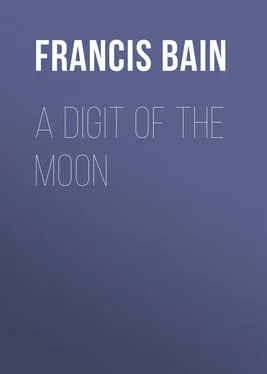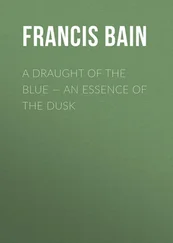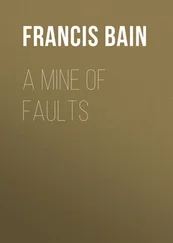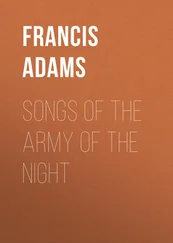Francis Bain - A Digit of the Moon
Здесь есть возможность читать онлайн «Francis Bain - A Digit of the Moon» — ознакомительный отрывок электронной книги совершенно бесплатно, а после прочтения отрывка купить полную версию. В некоторых случаях можно слушать аудио, скачать через торрент в формате fb2 и присутствует краткое содержание. Жанр: foreign_antique, foreign_prose, на английском языке. Описание произведения, (предисловие) а так же отзывы посетителей доступны на портале библиотеки ЛибКат.
- Название:A Digit of the Moon
- Автор:
- Жанр:
- Год:неизвестен
- ISBN:нет данных
- Рейтинг книги:4 / 5. Голосов: 1
-
Избранное:Добавить в избранное
- Отзывы:
-
Ваша оценка:
- 80
- 1
- 2
- 3
- 4
- 5
A Digit of the Moon: краткое содержание, описание и аннотация
Предлагаем к чтению аннотацию, описание, краткое содержание или предисловие (зависит от того, что написал сам автор книги «A Digit of the Moon»). Если вы не нашли необходимую информацию о книге — напишите в комментариях, мы постараемся отыскать её.
A Digit of the Moon — читать онлайн ознакомительный отрывок
Ниже представлен текст книги, разбитый по страницам. Система сохранения места последней прочитанной страницы, позволяет с удобством читать онлайн бесплатно книгу «A Digit of the Moon», без необходимости каждый раз заново искать на чём Вы остановились. Поставьте закладку, и сможете в любой момент перейти на страницу, на которой закончили чтение.
Интервал:
Закладка:
So that very night, burning with the fierce fire of impatience, the King transferred the burden of his government to the shoulders of his ministers, and set out, with the portrait of his beloved, to win or lose her. And he would have taken nobody with him. But as he was preparing to depart, his boon companion, Rasakósha 22 22 Pronounce Russakósh . The name refers to the part he will play in the story: it means both 'a ball of mercury,' and 'a treasury of taste, wit, literary sentiments or flavours,' a sort of walking encyclopædia. The King's companion is a salient figure in Hindoo drama: he is a sort of Sancho Panza, minus the vulgarity and the humour.
, said to him: Sire, would you go alone? And the King said: My friend, I may fail, and never return. Why should I drag others with me into the jaws of destruction? I will go by myself. Then Rasakósha said: King, what are you about? You leave yourself behind, if you leave me. That half of you which inhabits your own body is altogether gone upon 23 23 This colloquialism is an exact facsimile of the Sanskrit expression.
the Princess, and wholly intent upon her, so as to think of nothing else: then how will you baffle her, without that other half of you which lives in me, and is always ready for your service? And what am I to do without my better half? And even if you do fail, what will you do without me? for even prosperity without a friend is tasteless 24 24 A play upon his own name.
: how much more adversity! Then the King said: Well, be it so. Come, let us be off. But Rasakósha said: Did I not say that your mind was wandering? Would you start on such a perilous adventure, without first securing the aid of Wináyaka 25 25 Ganésha, the god of obstacles and success. See Day 1.
? Who ever succeeded in anything that neglected him? And the King said: It is true. In my eagerness I had almost forgotten him. So he praised Ganésha, saying: Hail, O thou lord of the Elephant Face, whose trunk is uplifted in the dance! Hail to thee, before whom obstacles melt away like the mists of night before the morning sun! Hail to thee, aided by whom even the weak triumph over the strong! Hail to thee, without whom all prudence is vain, and all wisdom, folly! Hail, O thou whose basket ears flap like banners of victory in the wind!
Then they set out on their journey. And they fared on day and night through the forest, full of wild beasts, apes, and Shabaras 26 26 An old name for Bhíls and other wild tribes.
as the sea is of jewels: but the King in his preoccupation for many days neither spoke nor ate nor drank, living only on air and the portrait of the Princess, which night and day he devoured with his eyes.
Then one day, as they rested at noon beneath the thick shade of a Kadamba 27 27 'A tree with orange-coloured fragrant blossoms.'
tree, the King gazed for a long time at the portrait of his mistress. And suddenly he broke silence, and said: Rasakósha, this is a woman. Now, a woman is the one thing about which I know nothing. Tell me, what is the nature of women? Then Rasakósha smiled, and said: King, you should certainly keep this question to ask the Princess; for it is a hard question. A very terrible creature indeed is a woman, and one formed of strange elements. Apropos , I will tell you a story: listen.
In the beginning, when Twashtri 28 28 The Hindoo Vulcan, sometimes, as here, used for the Creator, dhatri = Plato's [Greek: demiourgos]. Sanskrit literature is the key to Plato; much of his philosophy is only the moonlike reflection of Hindoo mythology.
came to the creation of woman, he found that he had exhausted his materials in the making of man, and that no solid elements were left. In this dilemma, after profound meditation, he did as follows. He took the rotundity of the moon, and the curves of creepers, and the clinging of tendrils, and the trembling of grass, and the slenderness of the reed, and the bloom of flowers, and the lightness of leaves, and the tapering of the elephant's trunk, and the glances of deer, and the clustering of rows of bees 29 29 Hindoo poets see a resemblance between rows of bees and eye-glances.
, and the joyous gaiety of sunbeams, and the weeping of clouds, and the fickleness of the winds, and the timidity of the hare, and the vanity of the peacock, and the softness of the parrot's bosom, and the hardness of adamant, and the sweetness of honey, and the cruelty of the tiger, and the warm glow of fire, and the coldness of snow, and the chattering of jays, and the cooing of the kókila 30 30 The Indian cuckoo. The crane is a by-word for inward villainy and sanctimonious exterior. The chakrawáka, or Brahmany drake, is fabled to pass the night sorrowing for the absence of his mate and she for him.
, and the hypocrisy of the crane, and the fidelity of the chakrawáka ; and compounding all these together, he made woman, and gave her to man. But after one week, man came to him, and said: Lord, this creature that you have given me makes my life miserable. She chatters incessantly, and teases me beyond endurance, never leaving me alone: and she requires incessant attention, and takes all my time up, and cries about nothing, and is always idle; and so I have come to give her back again, as I cannot live with her. So Twashtri said: Very well: and he took her back. Then after another week, man came again to him, and said: Lord, I find that my life is very lonely since I gave you back that creature. I remember how she used to dance and sing to me, and look at me out of the corner of her eye, and play with me, and cling to me; and her laughter was music, and she was beautiful to look at, and soft to touch: so give her back to me again. So Twashtri said: Very well: and gave her back again. Then after only three days, man came back to him again, and said: Lord, I know not how it is; but after all, I have come to the conclusion that she is more of a trouble than a pleasure to me: so please take her back again. But Twashtri said: Out on you! Be off! I will have no more of this. You must manage how you can. Then man said: But I cannot live with her. And Twashtri replied: Neither could you live without her. And he turned his back on man, and went on with his work. Then man said: What is to be done? for I cannot live either with or without her 31 31 The very echo of Martial.
.
And Rasakósha ceased, and looked at the King. But the King remained silent, gazing intently at the portrait of the Princess.
And thus travelling on, day by day, through the forest, at length they drew near to the palace of the Princess Anangarágá.
DAY 1
Then, when the towers of the palace rose over the trees, and gleamed like gold on their eyes in the beams of the morning sun, King Süryakánta suddenly exclaimed: Ha! I am undone. And Rasakósha said: How is that? Then the King said: Alas! I have been absolutely possessed by the image of my beloved, night and day, waking and sleeping, so that I have thought of nothing in the world beside. And now here we are at the end of our journey, but at the beginning of difficulties. For as to what I shall ask the Princess, I have not the shadow of an idea. And if the thought of her has such power to bewilder me at a distance, the sight of her will utterly deprive me of my reason, so that I am lost already. Then Rasakósha said: O King, this is exactly why the Princess has hitherto baffled all her lovers. The spell of her beauty robs them of their intellect, and chains up their invention, and thus they fall an easy prey. But fortunate are you, that while your best half has been absent from its body, your other half 32 32 i. e. Rasakósha himself. The allusion is to a power, possessed by adepts in Yoga, of detaching the soul from the body. See Day 11.
has been watching over the empty case. Be under no concern: but when we are introduced into the presence of the Princess, tell her that you speak by my mouth, and leave all to me. So the King was relieved, and dismissing all other subjects from his mind, he again became wholly immersed in meditating on his mistress.
Интервал:
Закладка:
Похожие книги на «A Digit of the Moon»
Представляем Вашему вниманию похожие книги на «A Digit of the Moon» списком для выбора. Мы отобрали схожую по названию и смыслу литературу в надежде предоставить читателям больше вариантов отыскать новые, интересные, ещё непрочитанные произведения.
Обсуждение, отзывы о книге «A Digit of the Moon» и просто собственные мнения читателей. Оставьте ваши комментарии, напишите, что Вы думаете о произведении, его смысле или главных героях. Укажите что конкретно понравилось, а что нет, и почему Вы так считаете.












